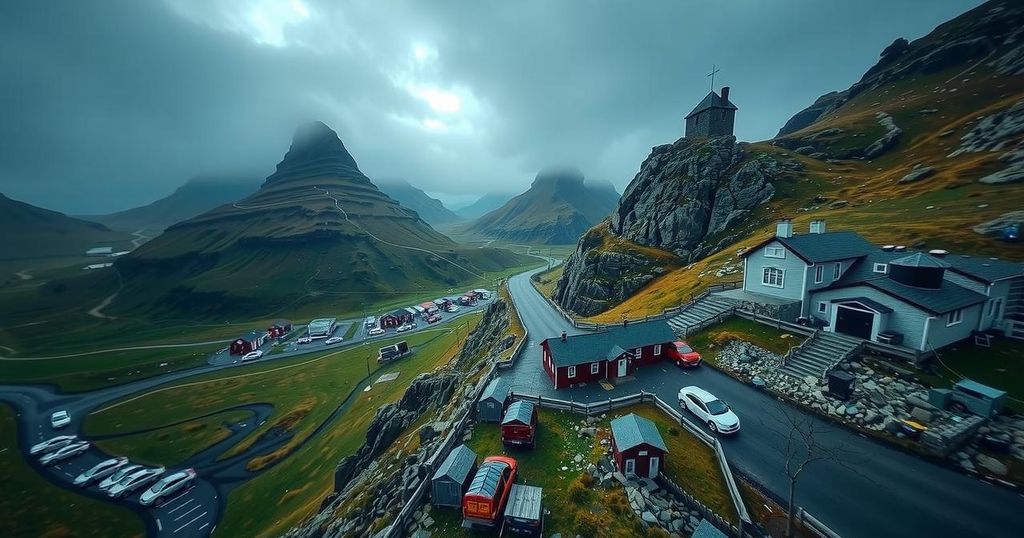Iceland is holding a parliamentary election following the collapse of Prime Minister Bjarni Benediktsson’s coalition government due to economic tensions, immigration issues, and volcanic eruptions. This marks the sixth election since the 2008 financial crisis as ten parties compete for seats in a challenging climate. Voter turnout is expected to be high despite adverse winter conditions.
Iceland is currently undergoing a significant parliamentary election following the collapse of the coalition government led by Prime Minister Bjarni Benediktsson. The dissolution was precipitated by internal disagreements concerning economic policies, immigration, and the aftermath of recent volcanic activity. This election marks the sixth general poll since the 2008 financial crisis, a period that has seen considerable political turbulence and economic instability for the island nation. On this election day, citizens will select 63 representatives for the Althingi, Iceland’s parliament, with strict requirements for party representation and a high anticipated voter turnout.
The harsh winter conditions pose logistical challenges for voters, with heavy snow potentially obstructing access to polling stations. As ten political parties vie for seats, recent opinion polls indicate significant discontent with the incumbent governing parties. Benediktsson’s coalition, formed from the Independence Party, the Progressive Party, and the Left-Green Movement, faced difficulties in governance amid growing economic pressures stemming from inflation and public dissatisfaction. In the lead-up to the elections, the Prime Minister requested the dissolution of parliament amid fears that his coalition could no longer function effectively due to the prevailing crises.
In Iceland, citizens are contending with a steep rise in living costs and immigration issues, alongside the repercussions of natural disasters. The spike in inflation, while showing signs of decline, remains alarmingly high when contrasted to neighboring nations. Furthermore, persistent volcanic eruptions have exacerbated the housing crisis, particularly in areas that have been directly affected. Concerns regarding the increasing number of asylum seekers arriving in the country have also ignited debates on national identity and capacity, complicating the political landscape even further as citizens search for effective solutions.
The political landscape of Iceland has been significantly influenced by several crises, particularly the 2008 financial collapse, which led to a considerable reevaluation of party policies and representation. Recent socio-economic issues, including the soaring cost of living aggravated by external factors like the COVID-19 pandemic and geopolitical tensions, have intensified public scrutiny of governmental effectiveness. Political instability has allowed for the emergence of new parties aligned with contemporary issues, such as environmentalism and direct democracy, reflecting a shift in voter expectations and priorities.
The parliamentary elections in Iceland represent a pivotal moment as voters seek to address the multifaceted challenges facing their nation, including economic instability, immigration pressures, and natural disasters. This election, held under challenging weather conditions, emphasizes the populace’s desire for effective governance and improved socioeconomic conditions, ensuring that the outcome will shape Iceland’s political dynamics significantly in the years to come.
Original Source: www.aljazeera.com






